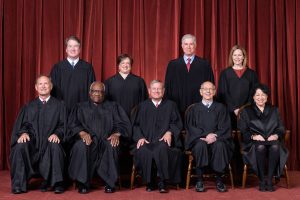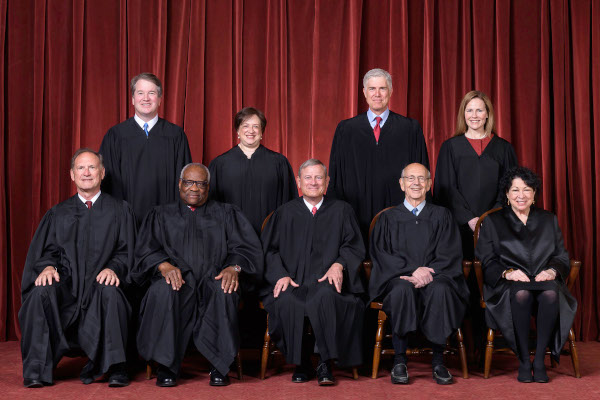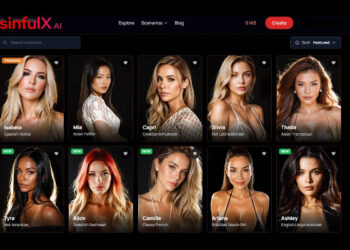 WASHINGTON, D.C. – When the Supreme Court issued its decision in Free Speech Coalition v. Paxton late last month, Justice Clarence Thomas framed it as no big deal, essentially.
WASHINGTON, D.C. – When the Supreme Court issued its decision in Free Speech Coalition v. Paxton late last month, Justice Clarence Thomas framed it as no big deal, essentially.
HB 1181, the Texas law at issue in the case, “simply requires adults to verify their age before they can access speech that is obscene to children,” Thomas wrote. Such a requirement “has only an incidental effect on protected speech,” he added.
Unsurprisingly, the FSC and other critics of the decision saw the things somewhat differently.
“This shocking decision goes far beyond adult content or adult websites,” said FSC Executive Director Alison Boden in response to the decision. “The Court has ignored the traditional protections of the First Amendment online and given states free reign to censor controversial content and ideas, so long as the goal is to protect children.”
Attorney Lawrence Walters of FirstAmendment.com told YNOT at the time that the “application of intermediate scrutiny to this type of law is an unfortunate development for the First Amendment, user privacy, and the adult industry.”
What Boden and Walters both know – and, for that matter, what Justice Thomas must know, as well – is the court’s decision will embolden governments at all levels, from local to national, to seek additional carve outs in First Amendment protections for speech they disfavor.
It’s not hard to imagine a legislature issuing a finding that, say, “extremist political propaganda” is also harmful to minors, then following that finding with a law requiring certain political discussions to take place behind an age verification wall.
Would such a law still be unconstitutional, even after the Supreme Court’s finding in Paxton? My reflexive answer is yes, of course it would be, because political speech is ‘more protected’ (for lack of a better way to put it) than sexually explicit expression and there is no precedent on which a government could rely to argue any manner of political speech is harmful to minors.
The problem is, I’m starting to wonder whether this Supreme Court is conservative enough in the legal sense of the term “conservative” to overcome its political conservatism, with respect to the value of precedent. A legally conservative court typically views stare decisis as dispositive. At their confirmation hearings, several conservative members of the current Supreme Court invoked the principle of stare decisis in response to questions about whether they would overturn the precedent set in Roe v. Wade – and yet, we all know how that turned out.
It doesn’t take much imagination to picture the current court deciding that because the Constitution makes no explicit reference to some manner of expression or another, it can be deemed outside the bounds of First Amendment protection, unless right to express ourselves in such a fashion is “deeply rooted in this Nation’s history and tradition.”
To be clear, I’m not worried about the Court subjecting any form of political speech to age verification or some other form of restriction. But I am a bit worried that, given the opportunity, the Court might eventually conclude, using Dobbs-like reasoning, that pornography enjoys no First Amendment protection at all.
I’ve been a part of this industry for nearly 30 years now. Not once in all the years leading up to the Paxton decision have I believed for one second porn could be banned by the government. But now…? Let’s just say I’m a lot less sanguine on this point than I was 30 days ago.











